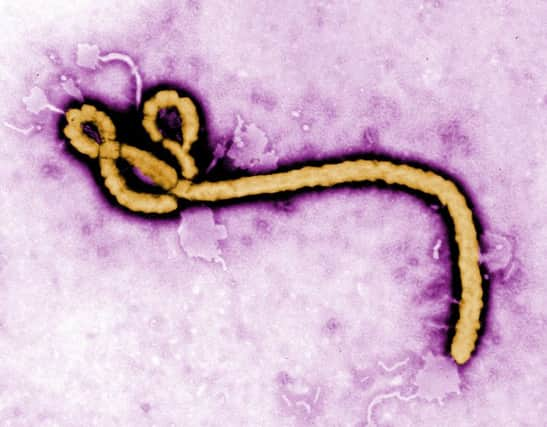Ebola danger ‘long way’ from over


More than 10,000 people have died and at least 24,000 have been infected since the epidemic began in Guinea in December 2013. The three-month delay in its official recognition has been blamed for its rapid spread to neighbouring Sierra Leone and Liberia, while other west African countries, such as Nigeria and Mali, also suffered fatalities.
The World Health Organisation (WHO) has been criticised for its slow response while governments and charities have admitted they could have done things differently.
Advertisement
Hide AdAdvertisement
Hide AdMedecins Sans Frontieres (MSF) which had emergency teams on the ground in Guinea before Ebola was even officially declared, said despite raising the alarm that the epidemic was out of control, “it was like shouting into a desert”.
The medical humanitarian organisation has released a report to mark the anniversary, which it dedicated to the 500 healthcare workers who have died, including 14 involved with the charity itself.
It said there was little sharing of information between the affected countries at first, while their governments tried to downplay the problem for fear of causing panic and driving visitors and investors away.
MSF general director Christopher Stokes said: “For the Ebola outbreak to spiral this far out of control required many institutions to fail. And they did, with tragic and avoidable consequences.”
Oxfam has said more efforts should have been put into engaging the community rather than focusing exclusively on medical treatment when the epidemic first broke out.
It said governments and aid agencies, including Oxfam, got the balance wrong and preventative measures should have been explored rather than simply more beds, medical workers and medicines.
The charity said Ebola has upended the most intimate aspects of everyday life – how people treat their families, their neighbours, their sexual partners, their dead, and their own bodies.
Oxfam added that without community acceptance, aspects of the fight against Ebola, such as treatment, safe burials and contact-tracing are difficult to carry out.
Advertisement
Hide AdAdvertisement
Hide AdThe charity said negative perceptions and fear of response efforts contributed to non-compliance and resistance in some areas.
Its research in Liberia found people’s early experiences with the Ebola response created distrust of government agencies and a fear of outsiders, ambulances and medical facilities, which led to people opting to try to treat themselves.
Sue Turrell, head of Oxfam’s Ebola response, said: “We are still a long way from getting to zero cases, but the direction of travel is positive.”
FOLLOW US
SCOTSMAN TABLET AND MOBILE APPS